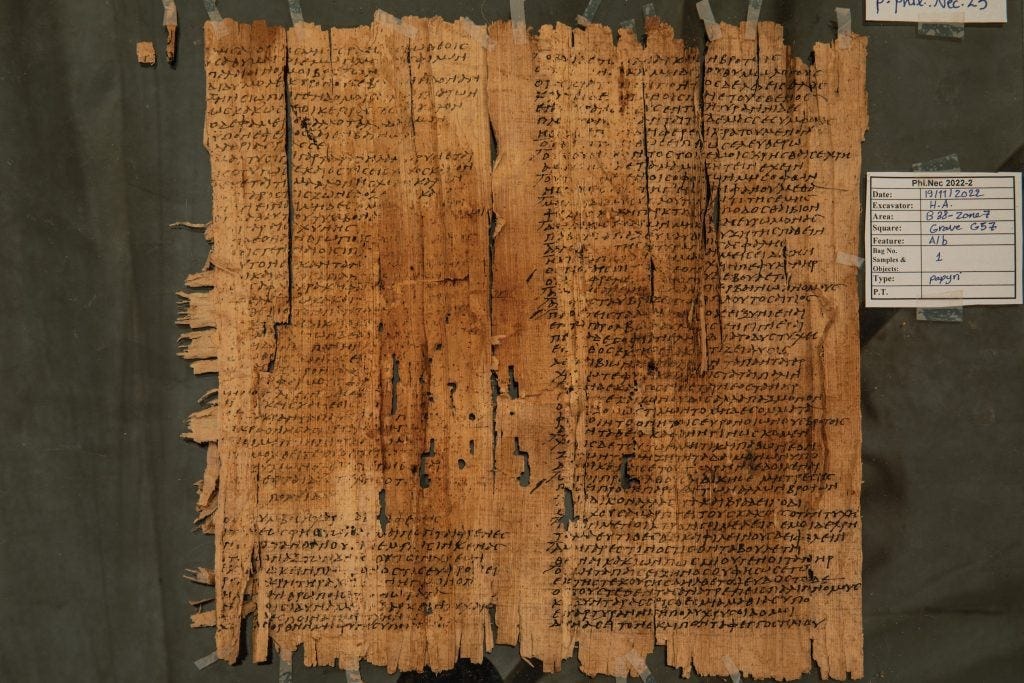Recently uncovered fragments of ‘lost’ Euripides Tragedies have been Translated
Latest News
Reported by Artnet:
In one of the most significant discoveries related to Ancient Greek literature over the past half century, archaeologists have uncovered around 100 lines from two otherwise lost plays by the 5th-century B.C.E. playwright Euripides.
The texts in question are Ino, a revenge tragedy of which 37 lines were discovered, and Polyidos, a moralistic tragedy of which 60 lines were uncovered.
The discovery came during excavations in late 2022 by an Egyptian team of archaeologists working at the ancient necropolis of Philadelphia, a site 75-miles southwest of Cairo. The papyrus was uncovered in 3rd-century C.E. pit graves connected to an older funerary structure.
The director of the Philadelphia excavation project, Basem Gehad, contacted Yvona Trnka-Amrhein, an assistant professor of classics at University of Colorado Boulder who he works with on excavations at Hermopolis Magna, an ancient city on the boundary between Lower and Upper Egypt. After establishing that the texts were Euripidean through an online database of ancient Greek texts, Trnka-Amrhein looped in her colleague John Gibert, an expert on Euripides.
Together, the academics have translated and analyzed the plays with their findings appearing in the latest edition of Journal of Papyrology and Epigraphy, a publication with a focus on Greek and Roman literature, history, and philosophy.
“Ino and Polyidos, were known only by plot summaries and a handful of quotations before,” Trnka-Amrhein said via email. “This is the most significant find of Greek tragedy since the publication of a papyrus of Euripides Erechtheus in the Sorbonne collection in 1967.”
The papyrus has been dated to the 3rd century C.E. based on the writing style and the archaeological context in which it was found. The text breaks some words into their composite syllables, suggesting it may have been a manual of sorts for elementary readers. “The non-luxury format of the literary text preclude[s] commercial production,” the authors wrote, noting the producer of the book may have been a higher education teacher with a “well-stocked library of classics.”
Read more here.




Any idea where and when these translations will be published?